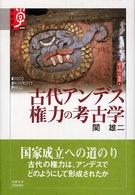Description
This book compares contemporary civil service systems across East and Southeast Asia, a dynamic region of greater diversity in local administrative tradition, imported models of modern administration, and the character of prevailing political institutions.
Featuring chapters on Japan, South Korea, Taiwan, Singapore, Hong Kong, Vietnam, Indonesia, Thailand, Malaysia, and the Philippines, this book provides a detailed analysis of key aspects of the civil service system, including centralization, recruitment, classification, openness of positions, performance assessment, promotion, training, and senior civil service. It distinguishes four modes of public employment, namely, bureaucratization, professionalization, politicization, and marketization, to develop a conceptual framework for comparing the civil service system at the operational level. The region’s contemporary civil service systems appear to be hybrid systems that combine, at varying degree, these modes of public employment, responding to administrative reform pressures. The patterns of public employment across East and Southeast Asia reflect local administrative traditions, imported Western models of administration, and the relative timing of democratization and bureaucratization.
With contributions from leading local experts across the region, this book will be invaluable to students, scholars, and practitioners interested in Asian public administration, especially civil service systems.
Table of Contents
0. Comparing civil service systems: bureaucratization, professionalization, politicization, and marketization
Chong-Min Park, Yousueng Han and Yongjin Chang
PART I: Civil service systems with the Confucian tradition
1. Japan
Motomichi Otani
2. South Korea
Juhyun Nam
3. Taiwan
Bennis Wai Yip So
4. Singapore
James Low
5. Hong Kong
Wilson Wong and Raymond Hau-yin Yuen
6. Vietnam
Ngo Thanh Can
PART II: Civil service systems with non-Confucian traditions
7. Indonesia
Eko Prasojo, Defny Holidin and Fajar Wardani Wijayanti
8. Thailand
Amporn Tamronglak
9. Malaysia
Khadijah Md Khalid and Nur Hairani Abd Rahman
10. The Philippines
Maria Fe Villamejor-Mendoza and Minerva Sanvictores Baylon
11. Conclusion
Chong-Min Park, Yongjin Chang and Yousueng Han




